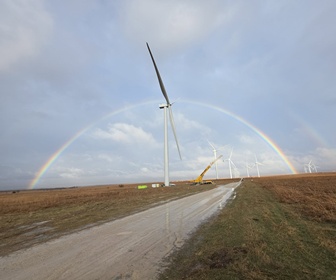A coalition of 18 US states and the District of Columbia is suing the federal government over a directive from President Trump that halts all new federal approvals for wind energy projects. The lawsuit, filed on 5 May 2025, claims the order is unlawful and puts the entire wind energy sector at risk.
The legal challenge focuses on a presidential Executive Order issued on 20 January 2025. The order stopped all new or renewed federal permits, leases, loans, and other approvals for both offshore and onshore wind projects. These approvals are frozen until a new, undefined multi-agency review process is completed—a process with no legal basis and no fixed timeline.
The plaintiffs in the case are New York, Massachusetts, Arizona, California, Colorado, Connecticut, Delaware, the District of Columbia, Illinois, Maine, Maryland, Michigan, Minnesota, New Jersey, New Mexico, Oregon, Rhode Island, and Washington. These states argue that the directive threatens their investments in wind energy infrastructure, job creation, and efforts to reduce greenhouse gas emissions.
The lawsuit says the halt is already affecting active projects. At least one offshore wind project, which had previously received all necessary permits, has been stopped under the new directive. The states argue that the wind industry operates in a complex regulatory and financial environment where delays can be costly and destabilising.
Critics of the directive also note contradictions in federal policy. On the same day the wind halt was announced, President Trump issued an executive order declaring a “national energy emergency” and called for expanded domestic energy production. However, that order promoted fossil fuels and excluded wind energy, despite the president's stated aim to ensure affordable and reliable power.
The states argue the wind directive is legally flawed, lacks justification, and reverses longstanding federal support for wind energy without explanation. They are asking the court to declare the directive unlawful and to prevent federal agencies from enforcing it.









